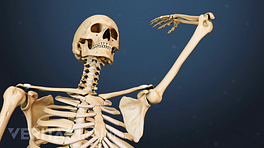Patients should always consult a health professional before changing their diet or taking any over-the-counter drugs or nutritional supplements (also known as dietary supplements or natural supplements).
Only patients who have been diagnosed with osteoarthritis by a health professional and have had other possible causes for their back pain ruled out are candidates for glucosamine and chondroitin sulfate supplements. Patients should inform their physician of any other medications they are taking and of their medical history before taking any type of dietary supplement.
See Osteoarthritis Complete Treatment Guide
Glucosamine and Chondroitin Sulfate Side Effects
In general, glucosamine and chondroitin sulfate nutritional supplements appear to be quite safe. The most common side effects occur that have been reported are gastrointestinal in nature, such as upset stomach, nausea, heartburn, and diarrhea. Taking glucosamine and/or chondroitin sulfate with food seems to reduce the incidence of the above side effects.
To date, no significant side effects have been reported, although long-term studies on the safety of glucosamine and chondroitin sulfate supplements still need to be completed.
Glucosamine and Chondroitin Sulfate Contraindications and Warnings
It is known that the following groups of patients should only take the supplements under close medical supervision or should avoid them altogether:
- Diabetic patients should only use glucosamine sulfate supplements under close medical supervision, as some studies suggest that glucosamine sulfate may increase insulin resistance.
- Patients who are allergic to shellfish should consult their physician before taking glucosamine sulfate supplements. However, an allergy to shellfish does not usually pose a limitation for taking glucosamine sulfate, as glucosamine sulfate is extracted from chitin, a carbohydrate, whereas shellfish allergies are most often caused by a protein.1
- Children, as well as women who are pregnant and/or nursing, or who could become pregnant. There is currently not enough research available to determine whether or not taking glucosamine and chondroitin sulfate supplements has negative effects on young children or fetuses.1
- Patients taking blood-thinning medications or daily aspirin should not take chondroitin sulfate, as it may contribute to bleeding.1
Patients who have any adverse reactions or unusual side effects to glucosamine and/or chondroitin sulfate supplements should discontinue use immediately and consult their physician.
Dosage for Glucosamine and Chondroitin Sulfate Dietary Supplements
The generally accepted daily dosages for the nutritional supplements are the following:
| Supplement name | Patients weighing less than 100 lbs | Patients weighing more than 100 lbs |
|---|---|---|
| Glucosamine sulfate | 1,000 mg | 1,500 mg |
| Chondroitin sulfate | 800 mg | 1,200 mg |
Patients who are obese or who weigh over 200 pounds should discuss proper dosage with their physician, as they may need to take higher levels of glucosamine and chondroitin sulfate. Both types of dietary supplements are available in capsule form over-the-counter (without a prescription). Glucosamine and chondroitin sulfate dietary supplements are often sold in combination formulas, and some patients find this easier to take.
Nutritional/Dietary Supplements Are Not Regulated
Finally, it is important to reiterate that both glucosamine sulfate and chondroitin sulfate nutritional supplements are not subject to the same strict regulations and FDA oversight as are other types of medications, so both the quality and the content/ingredients of the supplement capsule may vary between brands.
Therefore, patients need to be especially diligent about researching and using high quality brands. It is advisable for patients to talk to their physician and/or pharmacist about specific brands.
Glucosamine and Chondroitin Sulfate May Help with Optimal Pain Relief
It is certain that further research on glucosamine and chondroitin sulfate is still needed. However, the lack of more effective traditional medical treatments for osteoarthritis and the low incidence of side effects from glucosamine and chondroitin sulfate present the nutritional supplements as a viable treatment alternative for some patients with osteoarthritis.
Combined with other osteoarthritis treatments (as deemed appropriate by a physician), taking glucosamine and chondroitin sulfate dietary supplements may help some patients attain optimal levels of relief from osteoarthritis-related joint pain.
As more information becomes available, it is important for all patients to follow the recommended guidelines for taking glucosamine and chondroitin sulfate nutritional supplements (as well as other types of dietary supplements) and to remain under supervision of a physician throughout the duration of treatment.
References
- 1.Arthritis Foundation. "Alternative therapies: glucosamine and chondroitin sulfate." 2004.







